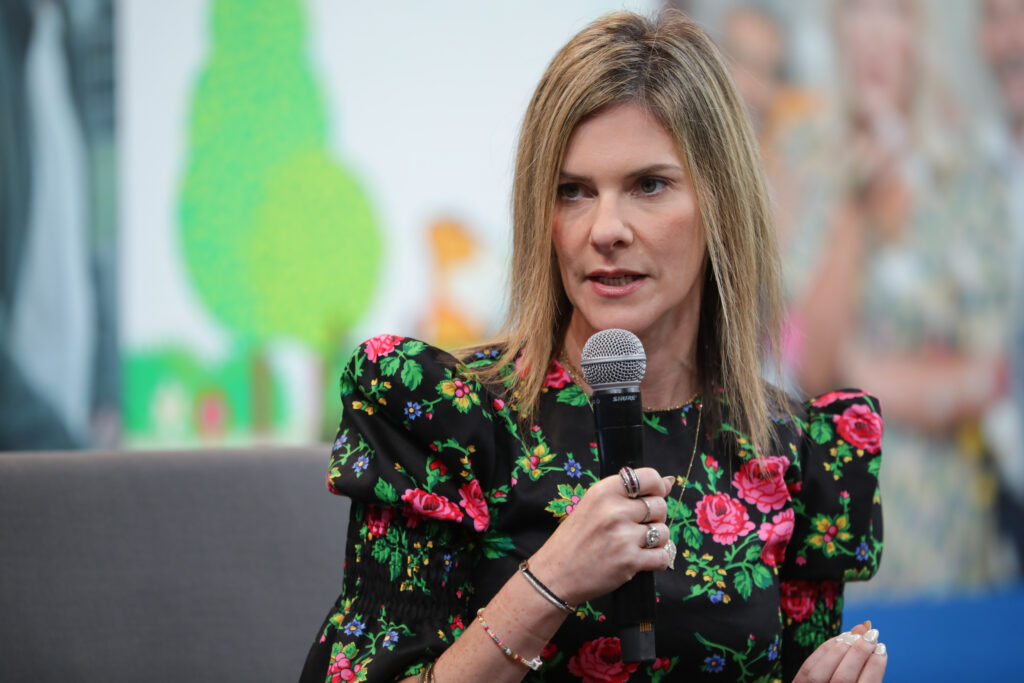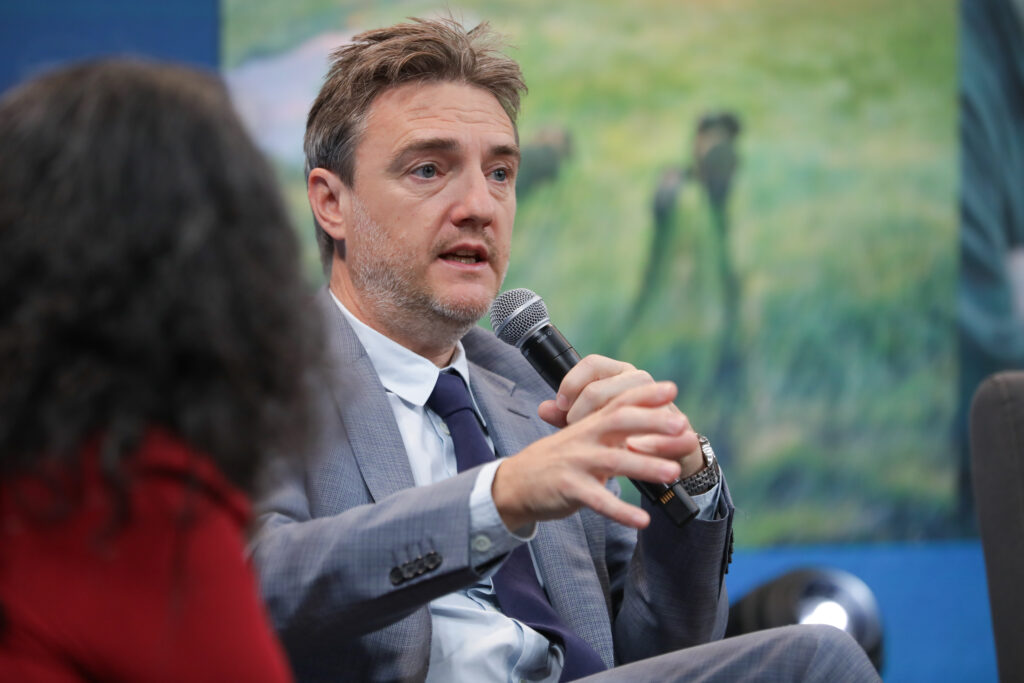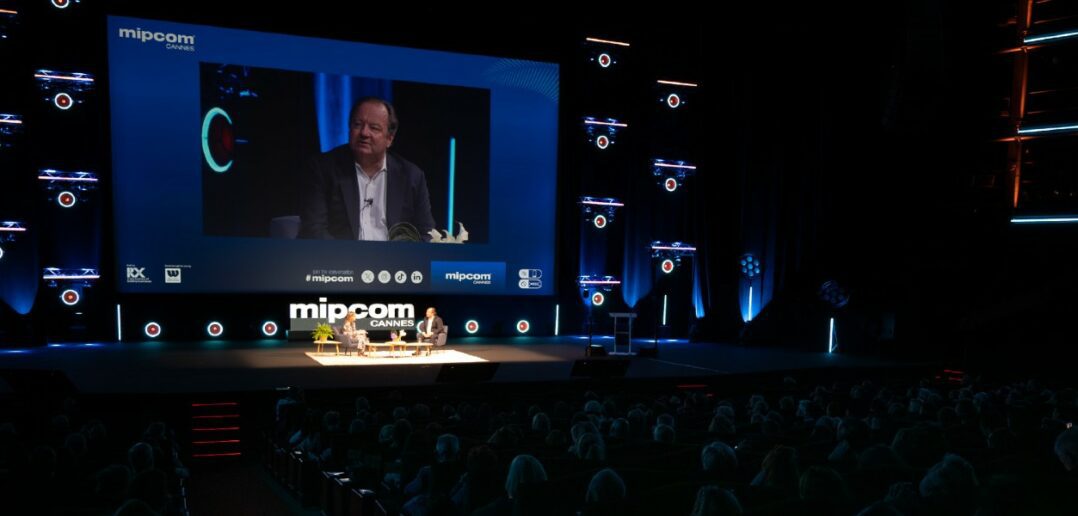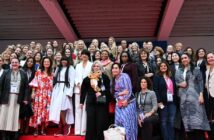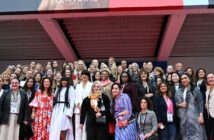MIPCOM CANNES Personality Of The year
Paramount Global president and CEO BOB Bakish is MIPCOM CANNES personality of the year. After collecting his award on the Palais Des Festival Grand Auditorium stage, Bakish delivered a Media Mastermind Keynote in which he discussed the state of the company’s streaming business and the critical importance of content licensing to the firm’s business model.
Bakish recalled how he gave a keynote speech at MIPCOM 2011 when he was CEO of Viacom International Media Networks. “The focus of that talk was how our business was changing, with new demographics, new distribution models, and new metrics. I talked about the need to be ready for change or risk irrelevancy. That message was true then and it is true now.”
Content licencing is a business that has strategic and financial value for Paramount. While our peers were pulling back content and putting up walled gardens, we never left – Paramount Global president and CEO BOB Bakish
Looking at the current landscape, he said this thesis is particularly relevant to major media companies as they work out how to balance their vast investments in streaming with their commitment to distribution as a business model. Speaking to a packed MIPCOM CANNES crowd, Bakish said: “Content licencing is a business that has strategic and financial value for Paramount. While our peers were pulling back content and putting up walled gardens, we never left.”
Stressing that content licencing “is a fundamental part of our economic model”, Bakish acknowledged that the media industry is currently in an economic trough that has been deeper than expected because of the downturn in ad revenues. But he expressed optimism about the company’s performance. He cited a major new content deal in Greece and the continued strong growth of the company’s free streaming platform Pluto TV.
“I’m often asked why Pluto TV is a separate brand,” he said.” And the reason is that we feel it’s very important to distinguish our free programming offering from our paid offering. For us, it feels like branding 101 to differentiate the two.”
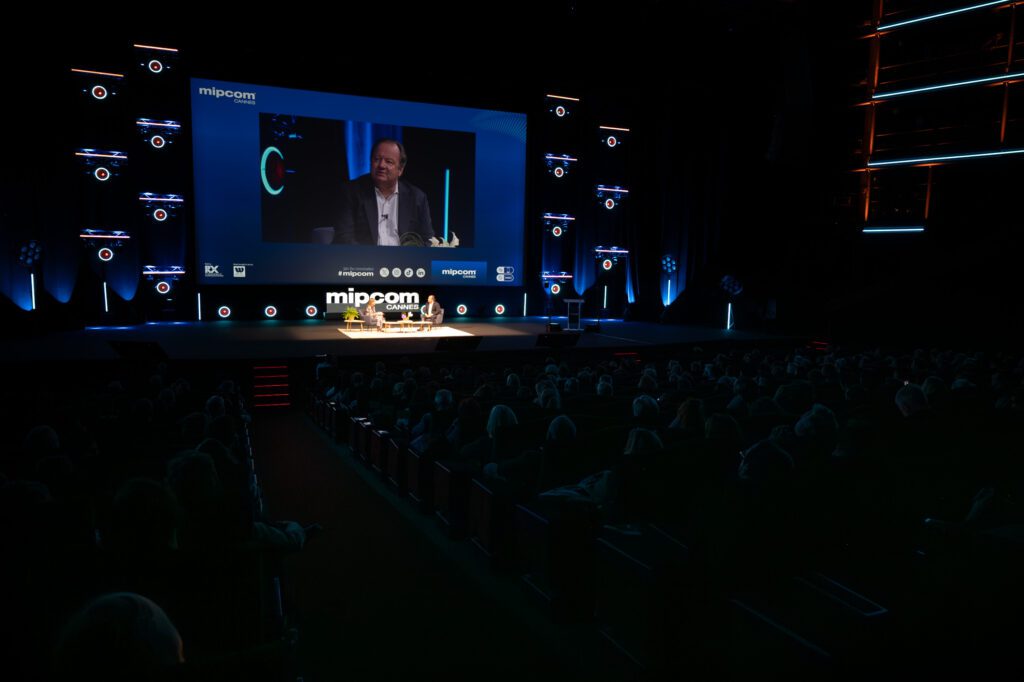
‘Never give up’
Ebonylife CEO Mo Abudu has not built her company or reputation by being shy and retiring. So it was no surprise to hear Africa’s leading TV executive deliver a scathing critique of the global industry’s lacklustre progress on diversity – especially as it pertains to African voices.
Speaking to an engaged audience, she castigated the industry’s gatekeepers for failing to bring African stories to the global stage. “I continue to see very little on television that speaks to me as a woman of colour. You think over the years there would be change. Probably every company has a D&I officer. And one wonders why? Because representation just isn’t there.”
Abudu took particular issue with the level of budgets allocated to Africa-originated stories. “We have worked with Netflix on local scripted content for Africa, but budgets for African content still sit at the bottom of the global content pyramid. How many black or African global shows have there been? And when I say global, I’m referring to budgets. To compete effectively with stories from the rest of the world, we need the same level of budgets.”
Get ready for rejections. As an African woman, you need to work three times harder. So never give up – Mo Abudu, Ebonylife
Abudu, who received a MIPTV Medaille d’honneur in 2019, first came to Cannes just over a decade ago. Offering advice to young African female talent, she said: “Get ready for rejections. As an African woman, you need to work three times harder. So never give up.”
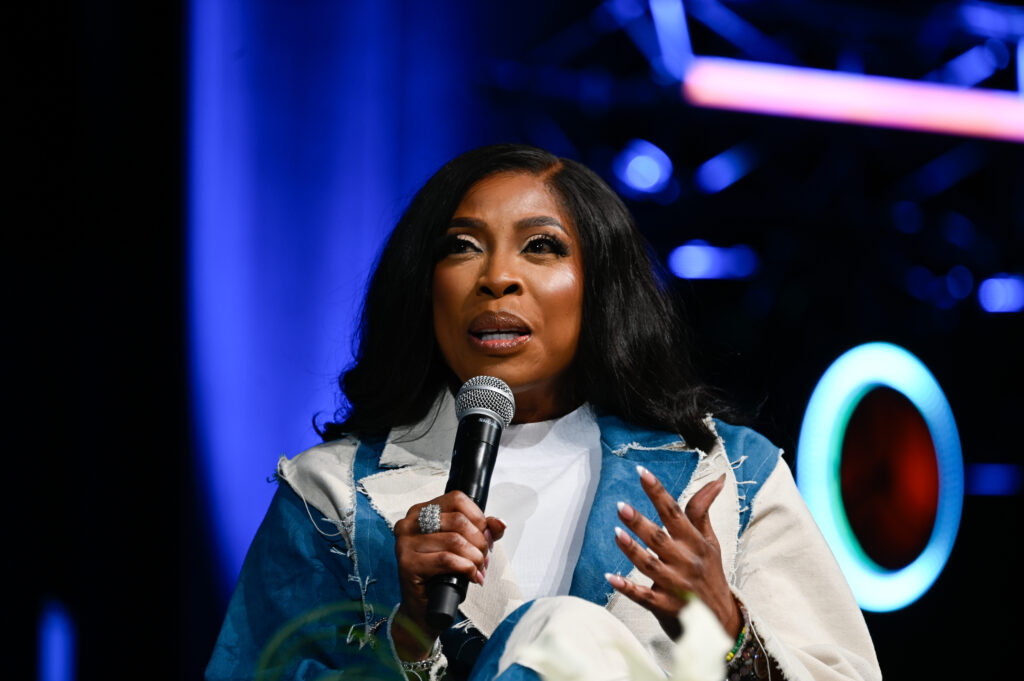
‘Spectacular work’ celebrated at Diversify TV awards
The Seventh MIPCOM CANNES Diversify TV Excellence Awards celebrated the best new TV shows representing diversity in all its forms.
“When we truly commit to elevatig these new authentic voices, we get spectacular work like the projects we’re honouring today,” said Mark Garner, executive vice-president and head of global FAST channels at the awards’ founding partner A+E Networks, as he introduced the event.
Nine awards were presented, starting with Representation of Disability – Non-Scripted, which went to Inside Our Autistic Minds (distributed by BBC Studios). About Antoine (Amuz Distribution) won the Representation of Disability – Scripted award.
Nights in Tefía (Buendia Estudios Canarias) won the award for Representation of LGBTQIA+ Scripted, while the prize for Representation of LGBTQIA+ Non-Scripted went to Lotus Sports Club (Dutch CORE).
The award for Representation of Race and Ethnicity – Scripted was won by Little Bird (Fremantle), and the award for Representation of Race and Ethnicity – Non-Scripted went to The Swap (Southern Pictures).
There were two awards for Representation of Diversity in Kids Programming. The Pre-School category was won by Reu and Harper’s Wonder World (Channel 5 / Doc Hearts Ltd) and the Older Children award went to Phoenix Rise (Sinking Ship).
Finally, Debora Williams, CEO of the UK-based Creative Diversity Network, won a Behind the Scenes Impact award for her work advising on the rights of disabled people, and drawing up diversity standards for the television industry.
Guest presenters at the awards included Paralympian swimmer, activist and TV personality Ellie Simmonds, and the creator and lead actor of acclaimed drama ‘Sort Of’, Bilal Baig.
Awards host was international journalist and broadcaster Femi Oke.
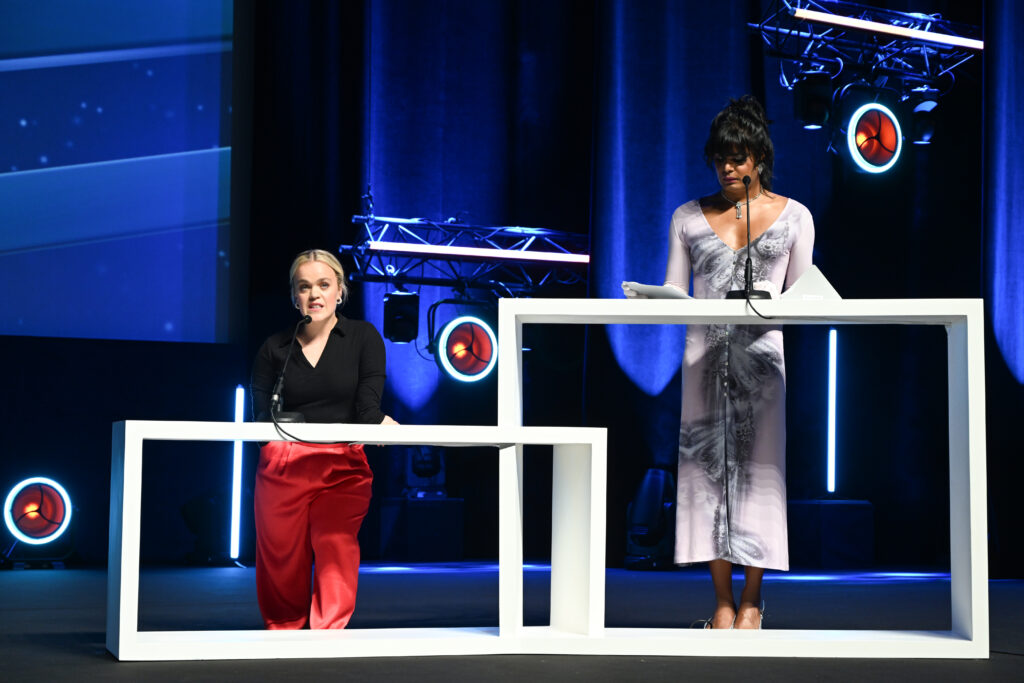
AI: ‘Important is the trust element and responsibility element’
Creative companies harnessing machine learning and AI technologies must ensure that the services they develop remain secure, responsibly delivered, and “grounded in reality”, a senior Google executive has told MIPCOM delegates.
Speaking to attendees at the inaugural Unlocking AI Summit on Tuesday morning, Anshul Kapoor, head of media solutions at Google Cloud, said that firms must be aware of their responsibilities to deliver accurate, trustworthy information to their partners and audiences.
He said: “If you look at how quickly the technology has accelerated in the last six-nine months it’s only going to go further, but I think equally important is the trust element and responsibility element.
“What we all need to look at in our companies is that just because AI is creating effects for video, how is it to be trusted? Is it, in the industry term, hallucinating in certain cases, is it making stuff up?
“When you’re talking to trusted sources and trusted partners, media companies, consumers are going to those sources to consume information. You want to give them something that’s grounded in reality.
“That’s going to be very important. Data security is going to be very important so that the data from your model is not leaked. Yes there’s a lot of focus on AI and it’s amazing innovation but equally important is the other aspects of data security and responsibility.”
Kapoor’s comments came towards the end of yesterday’s Immersive Showcase session, during the first ever dedicated AI tech summit at MIPCOM. He said that there was a “lot of work internally at Google” being done to ensure that the company was “focusing on grounding” and maintaining standards of responsibility.
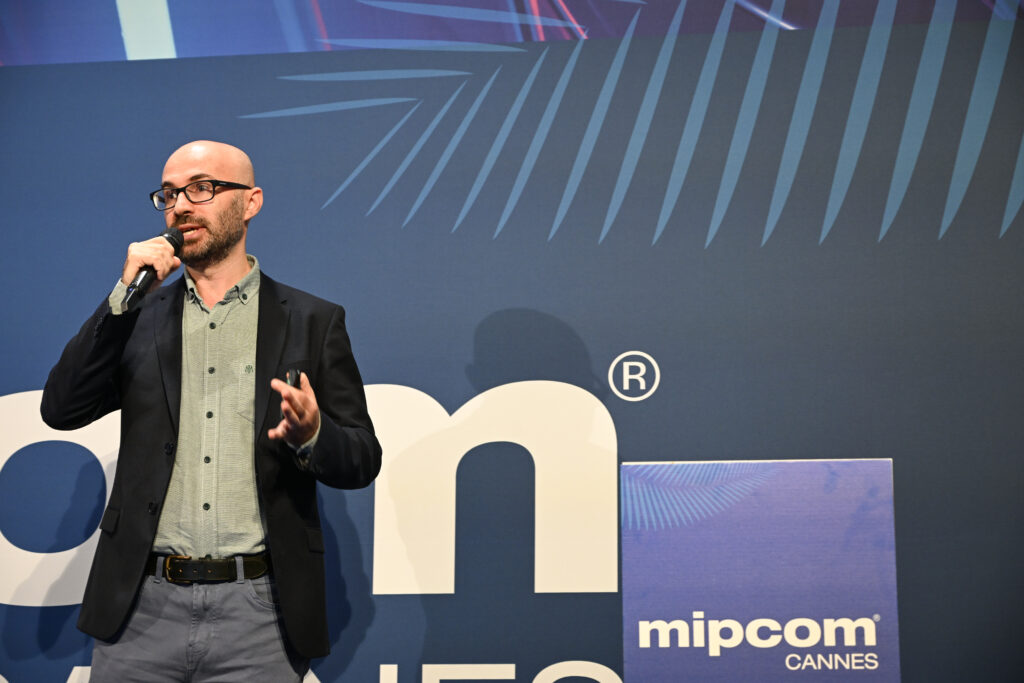
‘We have real diversification across all genres and regions’
BBC Studios has been on a strong growth trajectory since merging its production and distribution capabilities into a single unit a few years ago. But how is it coping in the face of the economic correction that is impacting the global content industry? This was the core question on the table in Tuesday morning’s session: BBC Studios, Growing a Global Content Studio in a Disrupted Marketplace [Hi5 Studio, October 17th, 9.30pm].
Rebecca Glashow, CEO BBC Studios global distribution, said: “It’s all about staying disciplined. This industry has always had peaks and troughs, but it’s about taking a long term view on the business and not just thinking about what’s happening in the year. At times like this, it’s really important to draw strength from the long-term partnerships that sustain you.”
Ralph Lee, CEO BBC Studios Productions added that the company benefits from the breadth of its business: “We have real diversification across all genres and regions. We can be covering the Coronation or Eurovision one minute, then launching a brilliant natural history, factual entertainment or scripted series the next. By leaning into different business models and our global footprint, we can cushion the effect of the turbulence.”
Even amid the disruption, there are still opportunities, he added: “Five years ago, we had no production activity in Australia. Now we have a busy production division that has grown rapidly with series like Mastermind, The Weakest Link and Bake Off.” He used the session to give sneak previews of Planet Earth 3 and a new adaptation of Enid Blyton’s Famous Five.
Glashow and Lee acknowledged that buyers have become more cautious, but they stressed that risk-taking is still crucial: “We have to make sure we are not moderating our ambition,” said Lee. “We need to take bets on series like Rain Dogs and Am I Being Unreasonable? There’s still a lot of brilliant original work so it is important not to get too depressed.”
Glashow said one response has been greater flexibility in deal-making. “How to window, whether to be exclusive or non-exclusive… there’s a lot more listening on all sides.”
